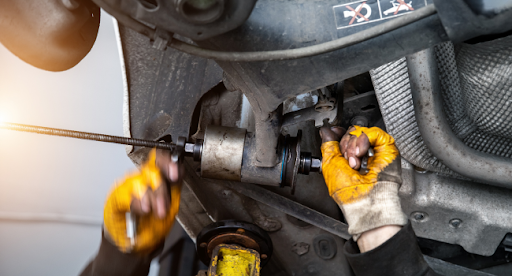Automotive
Navigating the World of Extended Car Warranties

In an ever-evolving automotive landscape, car owners are increasingly seeking ways to ensure the longevity and reliability of their vehicles. Amidst this backdrop, extended car warranties, aftermarket auto warranties, and used car warranties have emerged as vital tools for consumers looking to protect their automotive investments. These warranties offer a layer of security beyond the standard manufacturer’s coverage, addressing the complexities and financial uncertainties associated with car ownership.
Understanding Extended Car Warranties
An extended car warranty, often referred to as a vehicle service contract, supplements or replaces the warranty coverage provided by the car’s manufacturer. Typically, these warranties kick in after the expiration of the manufacturer’s warranty, offering continued protection against certain mechanical malfunctions or manufacturer defects. While the exact coverage varies, they often include critical components like the engine, transmission, and electrical systems.
The Appeal of Aftermarket Auto Warranties
Aftermarket auto warranties cater to those seeking additional coverage or specific component protection not offered under standard or extended warranties. These plans are particularly beneficial for high-mileage vehicles or cars with a history of costly repairs. They offer a range of services, from basic powertrain protection to comprehensive bumper-to-bumper coverage, with varying degrees of customization based on individual needs and vehicle specifications.
Warranties for Used Cars: A Smart Move
Purchasing a used car brings its own set of uncertainties, making warranties for these vehicles a wise consideration. Used car warranties provide peace of mind, ensuring that buyers are not left footing the bill for unforeseen repairs. Coverage options range from basic to extensive, with some plans offering similar benefits to those found in new car warranties.
Key Considerations for Choosing the Right Warranty
Choosing the right warranty requires careful consideration of several factors:
- Vehicle Specifics: Older cars and those with high mileage often require more comprehensive coverage, given their propensity for more frequent repairs.
- Coverage Scope: It’s crucial to understand the extent of coverage, including what’s included and excluded. Exclusionary warranties specify what’s not covered, while inclusionary warranties detail the covered components.
- Cost-Benefit Analysis: Weighing the cost of the warranty against potential repair expenses is essential. Higher premiums might offer more extensive coverage, but it’s important to assess whether this aligns with your vehicle’s needs.
- Provider Reputation: Opt for providers known for their customer service, smooth claims process, and financial stability. This ensures reliability and peace of mind when it comes to honoring warranty terms.
- Flexibility and Convenience: Consider warranties offering additional perks like 24/7 roadside assistance, towing, rental car coverage, and the flexibility to choose your repair facility.
The Bottom Line
Extended, aftermarket, and used car warranties serve as a buffer against unexpected repair costs, offering car owners a sense of security. However, the key lies in choosing a plan that aligns with your specific needs, vehicle type, and financial considerations. By thoroughly understanding the terms, coverage limits, and exclusions, car owners can make informed decisions, ensuring that their vehicle remains a source of joy and not a financial burden.
As the automotive industry continues to evolve, the importance of these warranties in providing a safety net for car owners cannot be overstated. They represent not just a financial decision but a strategic move to safeguard one of your most significant investments — your vehicle.

